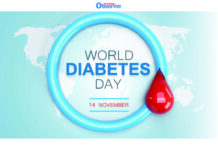What are Over-the-Counter (OTC) Medications?
OTC medications are drugs that can be purchased without a prescription. They are considered safe and effective for use by the general public when used according to the label instructions and adherence.
Examples: Pain relief medications such as paracetamol and ibuprofen; cold and allergy remedies like anti-histamines and decongestants; digestive aids and antacids including Mayogel and Gaviscon; as well as topical treatments such as hydrocortisone cream and diclofenac gel.
Usage
-
Accessibility: OTC medications are readily available in pharmacies and some grocery stores. No prescription is needed, making them convenient for self-treatment of minor ailments.
-
Indications: Intended for mild, self-limiting conditions such as headaches, allergies, and minor aches and pains.
-
Labelling: OTC drugs must have clear labelling, including dosage instructions, warnings, and potential side effects to ensure safe use.
Advantages
-
Convenience: Easily accessible without a healthcare provider’s visit.
-
Cost-effective: Typically more affordable than prescription drugs.
-
Self-care: Empowers individuals to manage minor health issues independently.
Disadvantages
-
Potential for misuse: Some individuals may misuse OTC medications or use them for conditions they are not intended to treat.
-
Limited scope: OTC medications may not be effective for more severe conditions requiring professional evaluation and treatment.
What are Prescription Medications?
Prescription medications are drugs that require a healthcare provider’s authorisation to be dispensed. They are typically used to treat more serious or chronic health conditions.
Examples: Commonly prescribed medications include antibiotics, anti-hypertensive and antidiabetic drugs, as well as controlled substances.
Usage
-
Access: Prescription medications can only be obtained through licensed healthcare providers (e.g., doctor) who assess the patient’s condition, determine the appropriate treatment, and issue a prescription to be interpreted and dispensed by pharmaceutical personnel (pharmacist, pharmacy technician, etc).
-
Indications: Prescribed for more complex health issues, chronic conditions, or when OTC options are inadequate.
-
Monitoring: Healthcare providers monitor patients for effectiveness and side effects, making adjustments as needed.
Advantages
-
Tailored treatment: Prescribed based on individual needs, taking into account medical history and other medications.
-
Stronger efficacy: More potent and effective for specific medical conditions.
-
Professional guidance: Patients receive advice regarding side effects and drug interactions.
Disadvantages
-
Cost: Often more costly, though not always.
-
Accessibility: Requires consulting a healthcare professional, which can be inconvenient.
-
Possible side effects: Higher risk of side effects and drug interactions requiring monitoring.
Understanding the differences between OTC and prescription medications is essential for effective self-care and proper management of health conditions.
While OTC medications offer convenience for minor ailments, prescription medications provide tailored treatments for more serious health issues, guided by healthcare professionals. Never use prescription drugs without a prescription, as improper use can result in serious health risks.
If you have any questions or need advice about your medication, please visit Ekuphileni Clinic, where you will receive the help and support you need.
THE ULTIMATE GUIDE TO OTC AND PM, MEDICATION
Visit www.ekuphileniclinic.com for more information or call 76023380 / 2408 9500. We are located at the SMVAF Office Park, Mbhilibhi Street, Mbabane.









